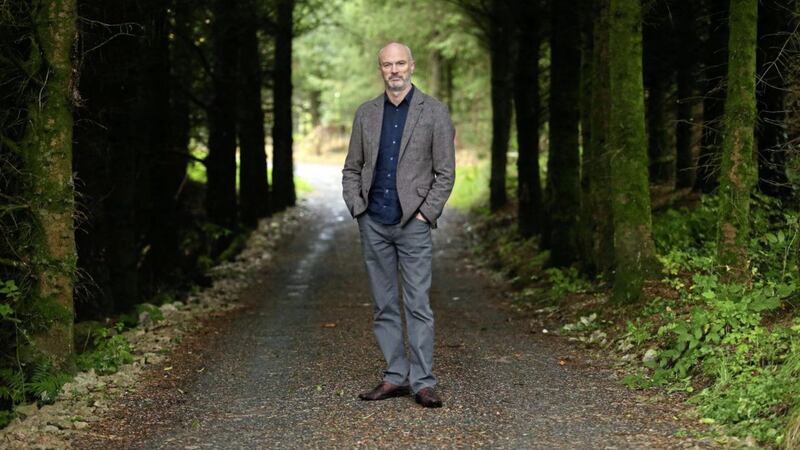GROWING up along the border during the Troubles, I wanted to run away but somehow I’ve remained rooted to the spot, living now at the edge of the Tyrone farm that I was born on.
During my mid-30s, I gave up all idea of leaving and started writing a series of detective novels set in the landscape I had known from childhood, of which Undertow is the fifth. It’s a spy thriller of sorts and also a meditation on the social and psychological effects of the Irish border.
At this stage of my life, I fear I know too little of the rest of the world to set my fiction anywhere else. However, I’ve grown to love intensely this bleak tract of the Ulster landscape on my doorstep, a terrain creaking and gurgling with treacherous bogland and thorn thickets, where, in my imagination, dubious spies and haunted detectives come and go in the mist like ghosts.
Undertow steers away from the broader political and military tensions of the region and focuses on the personal betrayals induced in a group of tense and doomed police detectives working in parallel along both sides of the border. I was inspired by the fact that for decades many of my neighbours, UK citizens living in Northern Ireland, have been travelling across the border daily to go to work, and vice versa.
Some of them were police officers living in one jurisdiction, and working in another, British nationals who wore the policing emblem of a different country, who carried two passports and operated in a murky twilight of national identity, one crammed with flags and history and gloomy gangs of marching men and women.
I was intrigued by the sense of estrangement this repeated act of crossing the border might create in a detective figure, especially one who falls unwittingly into a trap set by his colleagues and ends up a drowning victim on the shores of Lough Neagh.
My hero, Inspector Celcius Daly, is charged with unravelling the net of betrayal and discovers plenty of grist for the mill of suspicion and paranoia constantly grinding within his soul.
Over the series, Daly has grown into the puzzled detective-in-chief of the border’s labyrinth, accused by his police superiors of spending more time there than is healthy, of populating the landscape with his own demons. On his trips criss-crossing the border, he usually ends up lost on by-roads meandering into bogland or pondering the ruin of a rotting cottage at the end of a dark lane, his attempts to track down the enigmatic spy Robert Hunter petering out in dead-ends and the shells of abandoned police stations.
Moving and thinking in this darkness, Daly comes to realise that there never was ‘a hard border’ between the Republic and Northern Ireland in the sense of a static line or barrier. Instead, the border has existed as something much more restless and porous, a blurred zone of dead-ends and fleeting corridors that offer different limits and opportunities to criminals, police, and the ordinary people trying to live pragmatically in its shadow.
:: Undertow by Anthony J Quinn, published by Head of Zeus, will be launched at Waterstones, Belfast, on Thursday December 14 at 6.30pm. Admission free.



